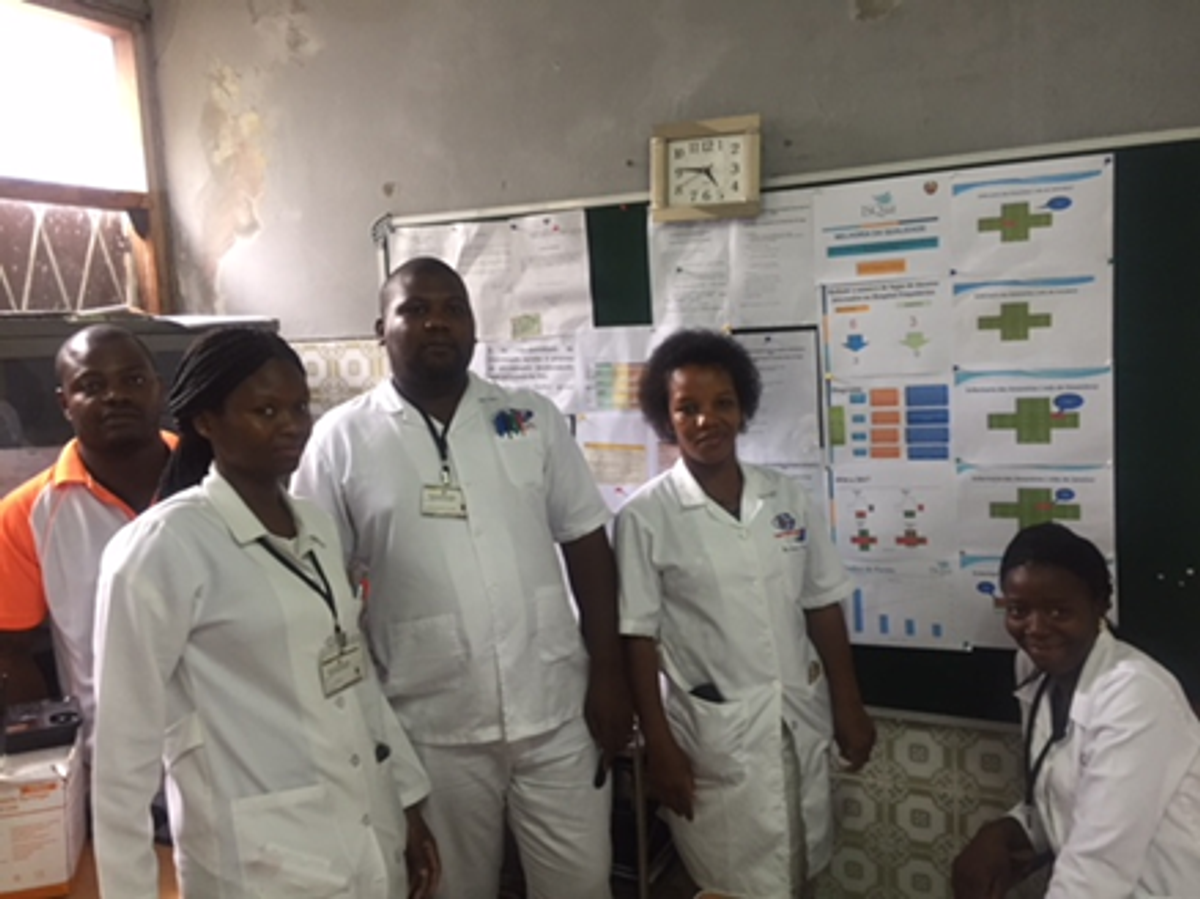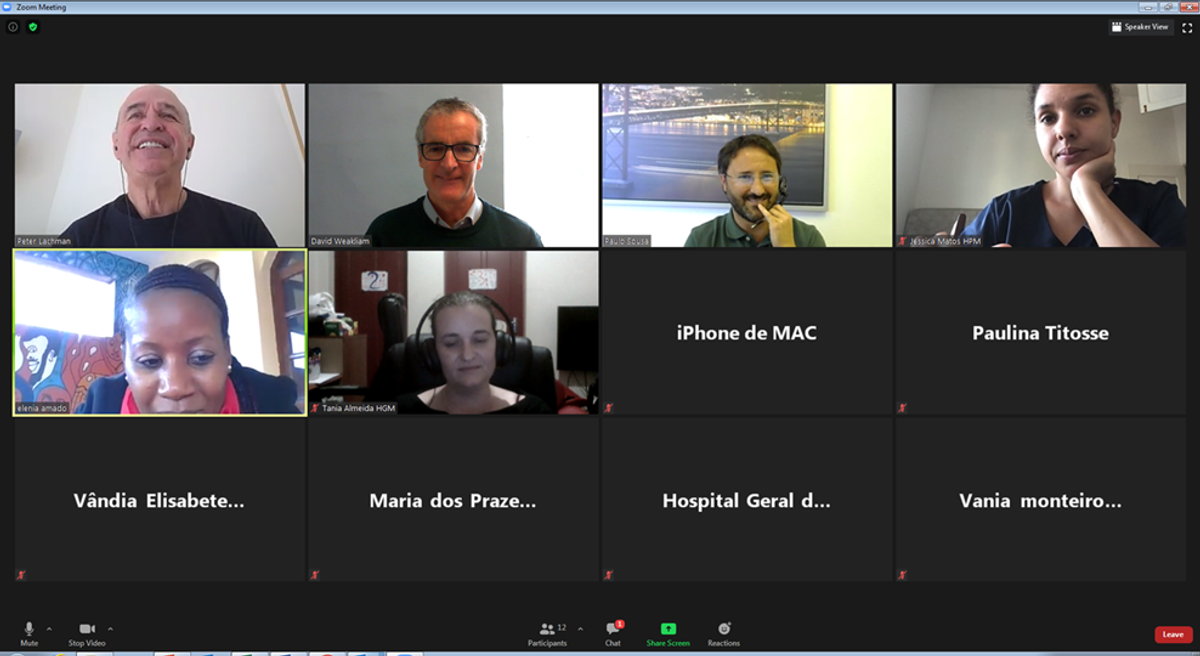WHO - NQPS Update
Dr David Weakliam, Global Health Programme Director, Health Service Executive, Ireland

WHO - NQPS Update
Dr David Weakliam, Global Health Programme Director, Health Service Executive, Ireland
In 2014, the Health Service Executive (HSE) signed an agreement with the Government of Mozambique to collaborate on improving health care. This built on Ireland’s long-standing bilateral aid programme in Mozambique. Following a series of exchange visits, the Ministry of Health prioritised quality of care in hospitals and thus we began a collaboration in quality improvement.
The QI programme started in August 2016. The HSE and Ministry of Health engaged ISQua as a technical partner and we collaborated to train teams from 14 hospitals and the Ministry of Health. Over the initial eight months, the teams attended three workshops to learn the QI approach and applied their skills in undertaking a hospital project.
By March 2017, most hospitals were already seeing positive results. In one example, the Jose Maҫamo General Hospital adopted the Australian ‘between the flags’ approach to managing deteriorating patients and saw a reduction in mortality of patients in the medical ward within 24 hours from 11 to 4 per month. The Matola Provincial Hospital reduced emergency department waiting time from 5 to 3 hours. Results from other hospitals included reduced outpatient waiting times, improved medical records, reduced stillbirth rate and improved communication with patients. Further to this, some hospitals had started to cascade the training to other staff and were initiating new QI projects.
The Deputy Director of Medical Assistance with responsibility for hospitals continued to lead the programme and supported the hospitals with regular monitoring visits. The Ministry’s commitment led to the Government establishing a Directorate for Quality in 2017. Together with the HSE they co-facilitated a stakeholder workshop to start developing a national framework for quality of care. The HSE and ISQua continued to support remotely through coaching webinars. We made four further visits to Mozambique in 2017 and 2018 for refresher workshops, training of trainers, training in prevention of pressure ulcers and hospital visits for coaching.


Returning in February 2020 after a gap of 15 months we were impressed at how QI had become embedded in the health institutions. Particularly in the Maputo hospitals, we saw QI activities being sustained and extended. At Jose Maҫamo General Hospital, where 58 patients had died on the medical ward within 24 hours in 2017, the deaths had decreased to 8 in 2019. At Mavalane General Hospital, gynaecology outpatient waiting times were reduced from 60 days in 2016 to less than a week in 2020. However, the achievements in Maputo were not matched by the rural provincial hospitals and we identified the need to provide further training and support in these areas.
It is equally pleasing the observe the dynamic leadership by the Ministry of Health which is the single most important factor for sustaining success. In our webinar this month, the Ministry presented updates on their latest QI initiatives – to improve antibiotic use in adults and children in hospitals; and to improve quality of care at hospital outpatient clinics for older patients with chronic diseases.
The bilateral partnership between Ireland and Mozambique, with technical support from ISQua, is an effective model for building capacity for quality of care. During COVID-19 we are relying on virtual platforms and social media. Beyond the pandemic, we will revert to a blended approach with periodic country visits, continuing our shared journey towards high-quality care in all services.


With the growing momentum towards Universal Health Coverage (UHC), there is a corresponding increased awareness that improved access must be accompanied by focused efforts to improve the quality of health services, if the desired improvements in health outcomes are to be achieved. The WHO Service Delivery and Safety (SDS) Department has embarked on an initiative aimed at supporting countries develop national directions on quality. The WHO National Quality Policy and Strategy (NQPS) initiative aims to support countries improve the performance of their health system through focused efforts on national quality direction. The work on NQPS has seen increasing prominence with the launch of three major reports on quality ([i] [ii] [iii] ), each of which call on governments to have a national quality policy and strategy. The NQPS work within WHO is centred around five inter-dependent areas: 1) NQPS technical foundation, including the WHO Handbook for NQPS and associated tools & resources, 2) country technical support to develop, refine and implement national quality policy and strategy 3) learning agenda on quality, with a focus on implementation, informed policy-making, 4) partner collaboration and 5) quality in fragile, conflict, and vulnerable (FCV) Settings.
ISQua is working with WHO as an NGO in official relations with WHO and has been a key collaborator in the NQPS initiative. ISQua has worked with the NQPS team to identify experts who can support Ministries of Health on national directions for quality. Under the direction of WHO, selected individuals will provide continued support to countries needing assistance on national directions on quality. Country requests may require in-country presence and/or extensive and extended remote technical support. In-country technical support visits may take place over a period of five to 15 working days depending on the nature of the work. Multiple visits may be required. Selected individuals will work closely with the WHO NQPS team. All experts will serve on a pro bono basis, though travel and subsistence expenses for country visits will be covered. The expected benefits to individuals participating in this initiative include receiving comprehensive training in national quality policy and strategy, having opportunities to lead and support complex global health projects, and contributing to important national initiatives to further the quality agenda in partner countries.
[i]) Delivering quality health services: a global imperative for universal health coverage. WHO, OECD, World Bank. Geneva: World Health Organization; 2018. Available from: http://apps.who.int/iris/bitstream/handle/10665/272465/9789241513906-eng.pdf?ua=1
[ii]) Kruk ME, et al. High-quality health systems in the sustainable development goals era: time for a revolution. Lancet Glob Health. 2018 Nov;6(11):e1196–252. https://doi.org/10.1016/S2214-109X(18)30386-3
[iii]) Crossing the global quality chasm: improving health care worldwide. Washington, D.C.: NAS; 2018. Available from: http://nationalacademies.org/hmd/Reports/2018/crossing-global-quality-chasm-improving-health-care-worldwide.aspx